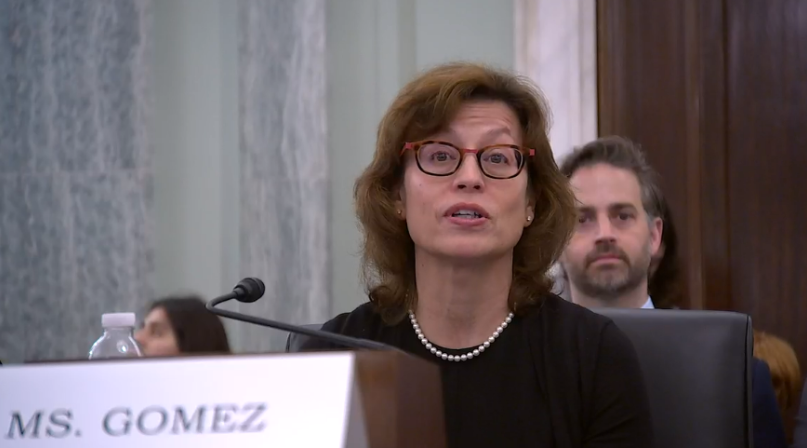How will a new commissioner affect FCC policies?
Author

Seamus Dowdall
Upcoming Events
Related News

Key Takeaways
There’s a new commissioner in town at the Federal Communications Commission (FCC). What does that mean for the future of internet policies?
The FCC has had no shortage of work on its plate the next few years.
From an open docket on how to define “digital discrimination,” to the construction of a new national broadband map and the implementation of billions of dollars in internet affordability funding, the FCC has worked on numerous fronts to help close the digital divide. The dynamics on the FCC’s board of commissioners, however, are approaching a new horizon.
On Sept. 22, the U.S. Senate confirmed Anna Gomez to serve as a commissioner on the FCC board of commissioners, which brings the total commissioner count to full capacity at five commissioners for the first time since 2020. The full board of commissioners reestablishes a party-majority on the FCC board of commissioners, with three Democratic commissioners and two Republican commissioners serving on the board.
The FCC has recently moved forward on several initiatives that are spearheaded by the new majority — including a proposal to reestablish Title II regulation of broadband service providers, commonly referred to as “net neutrality” that will likely draw a split vote on the board of commissioners. At the FCC’s October Open Meeting, the FCC advanced by a vote of 3-2 a notice of proposed rulemaking that will seek comment on the new net neutrality rules, with a comment due date of Dec. 16, 2023.
The new dynamics at the Commission offer several opportunities for counties to reiterate the importance of our bipartisan priorities, which include the following:
• Continue to improve the FCC’s national broadband maps by fact-checking broadband availability reporting and the underlying locations displayed on the map
• Provide input on the forthcoming 5G Fund for Rural America, which will allow providers to auction up to $9 billion in federal funding to build out rural cellular connectivity in currently unserved areas
• Advance a geo-routing solution for the 988 Suicide and Crisis Hotline to serve residents more precisely in crisis by connecting them with the nearest 988 crisis response center and
• Identify a long-term funding solution for the Affordable Connectivity Program, which makes high-speed internet accessible and affordable for lower-income residents.
NACo, in concert with the National League of Cities and the U.S. Conference of Mayors, met with the new FCC Commissioner Anna Gomez Oct. 10 to emphasize the position of local governments as intergovernmental partners in the deployment of high-speed internet to our rural and underserved communities.
NACo also shared the continued efforts of our TestIT application, which is a broadband and cellular speed-test application that can help measure the quality of your service connection. Results from NACo’s TestIT app are collected by Measurement Lab and fed into the National Telecommunications and Information Administration to populate their National Broadband Availability Map. You can download the TestIT app on the App Store or Google Play Store.
The FCC plans on joining NACo during the Rural Action Caucus Symposium Nov. 5-7 in Greenbrier County, W. Va. NACo will continue to work with the FCC under its new leadership and we look forward to advancing key county priorities.
Related News
County News
Local control, telecom fees on the table at FCC



